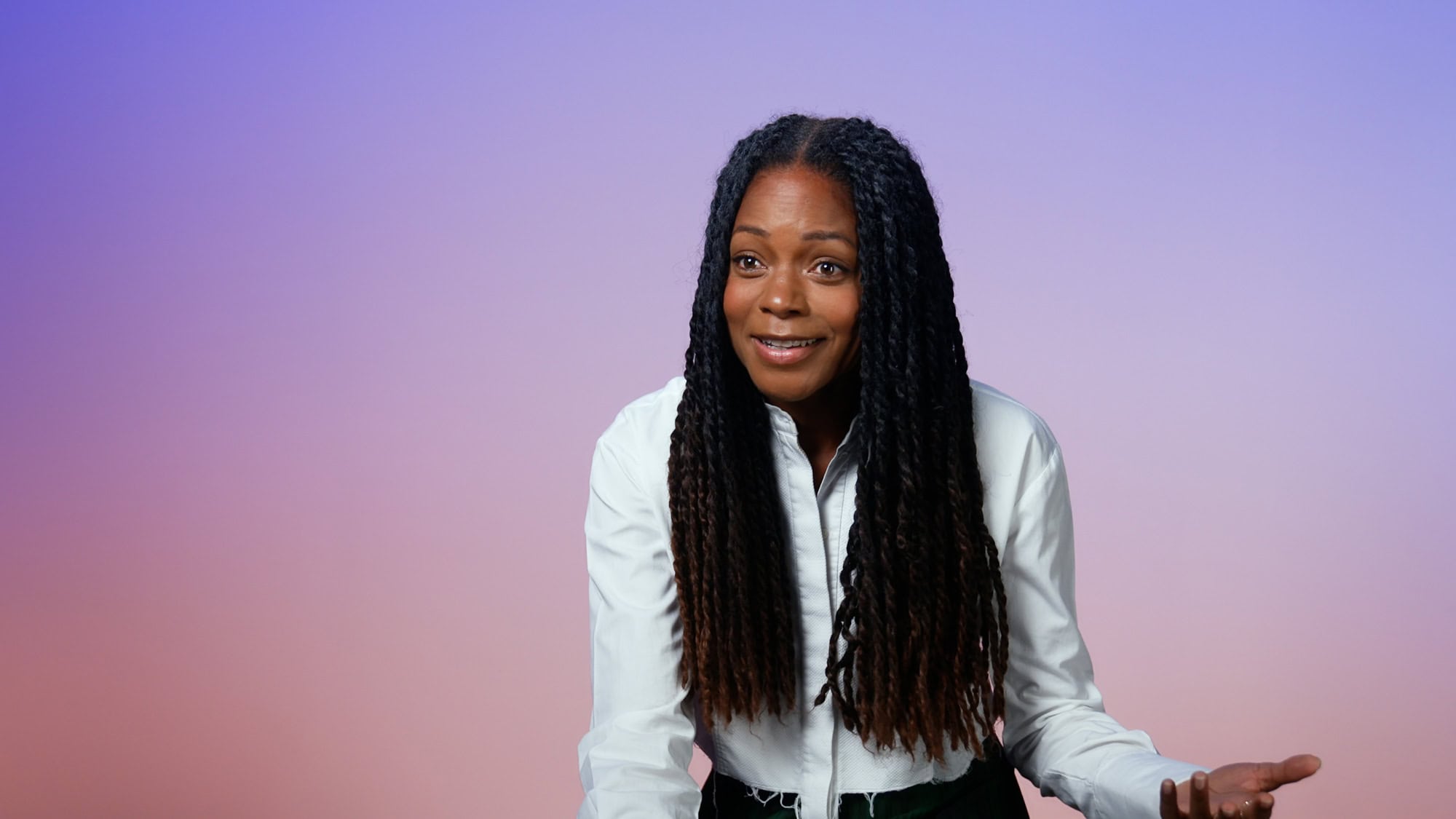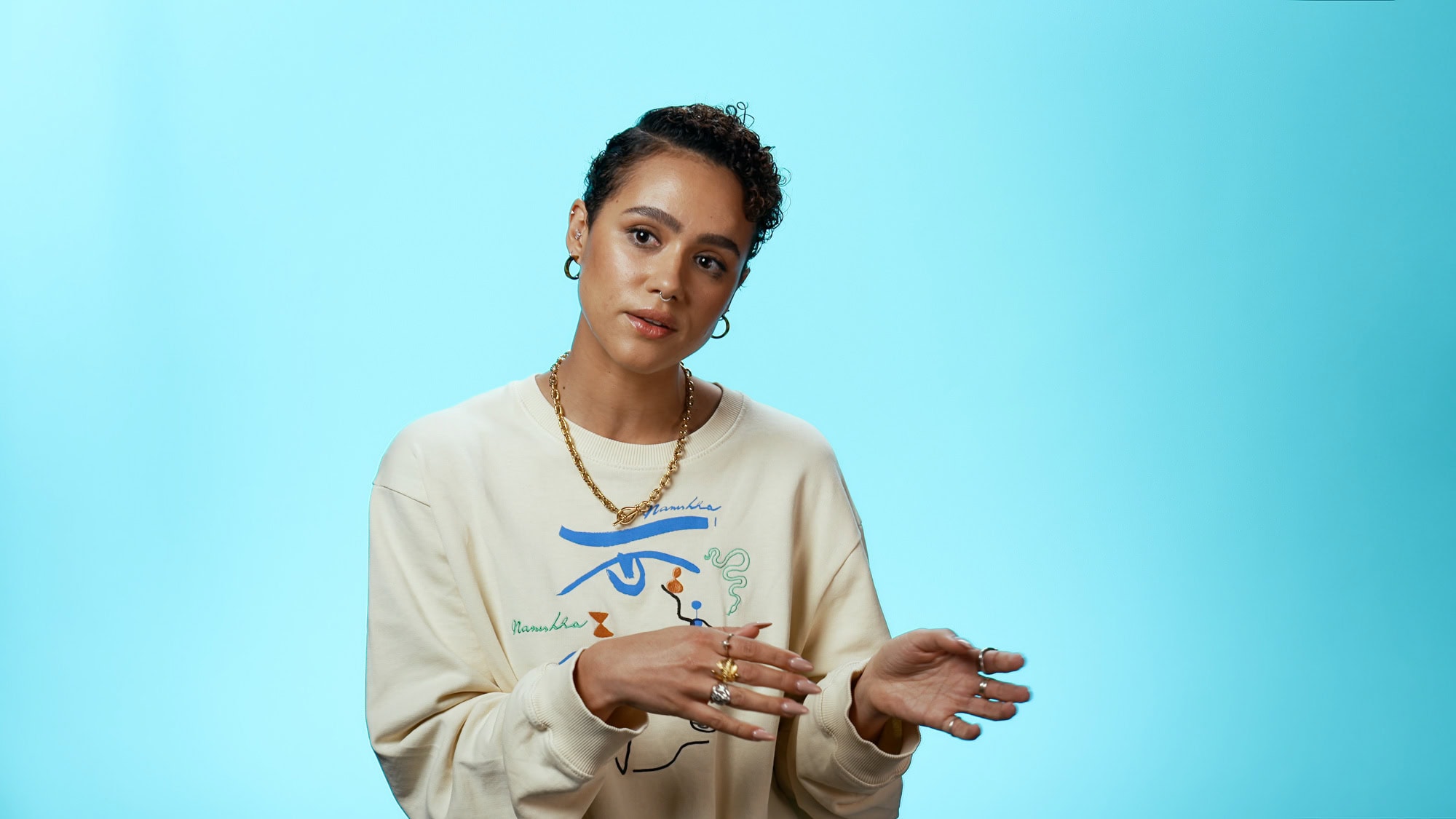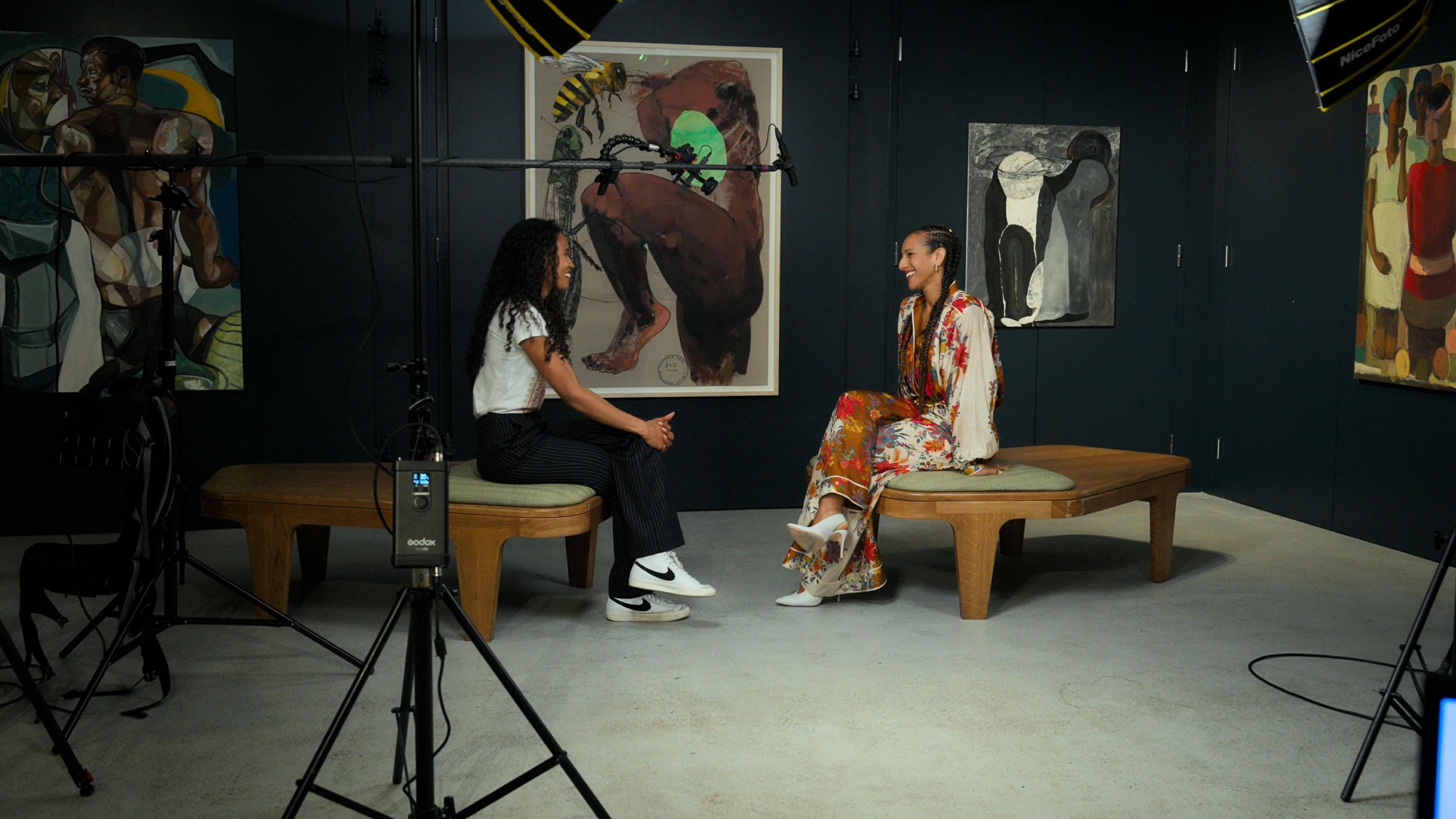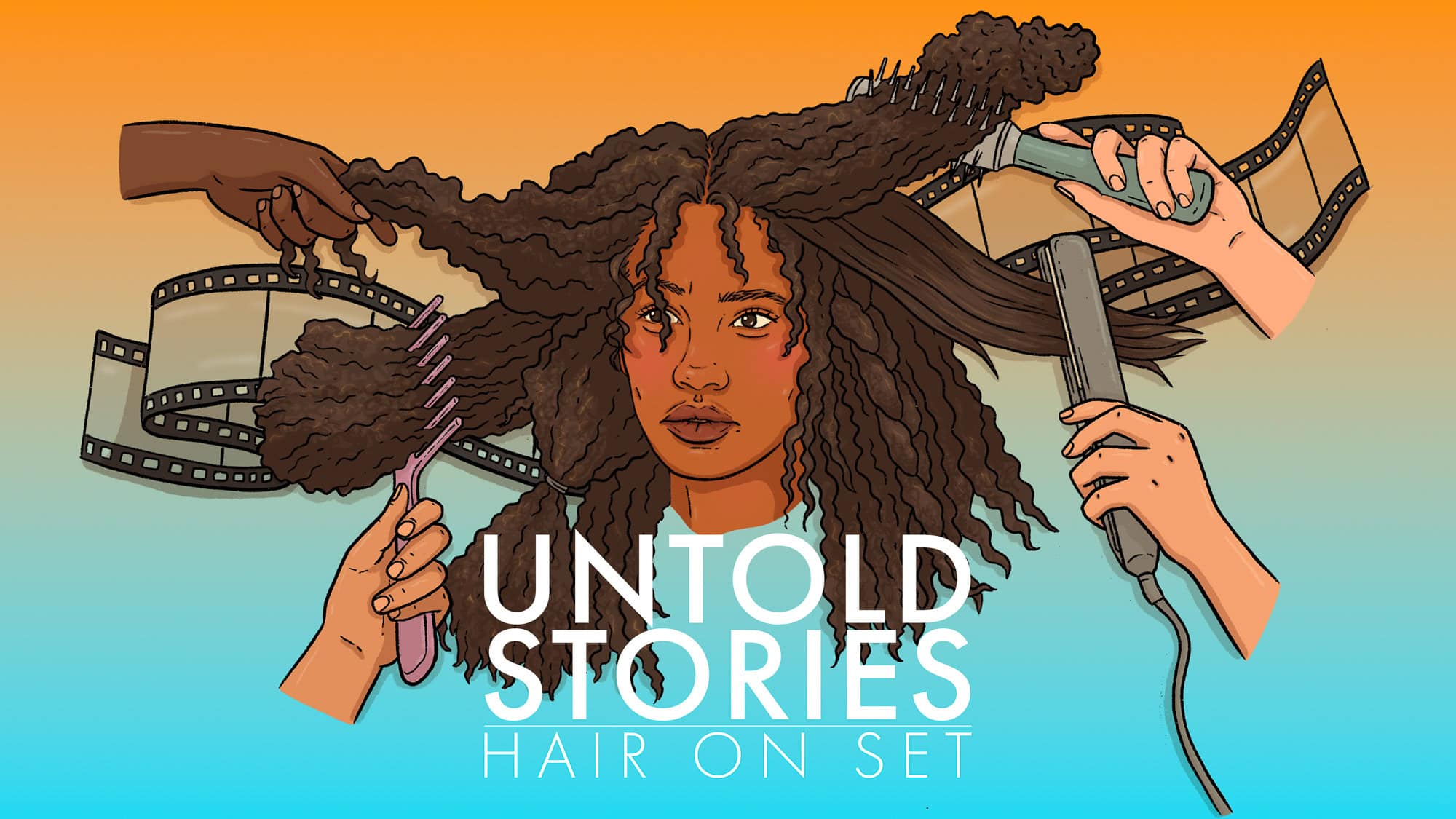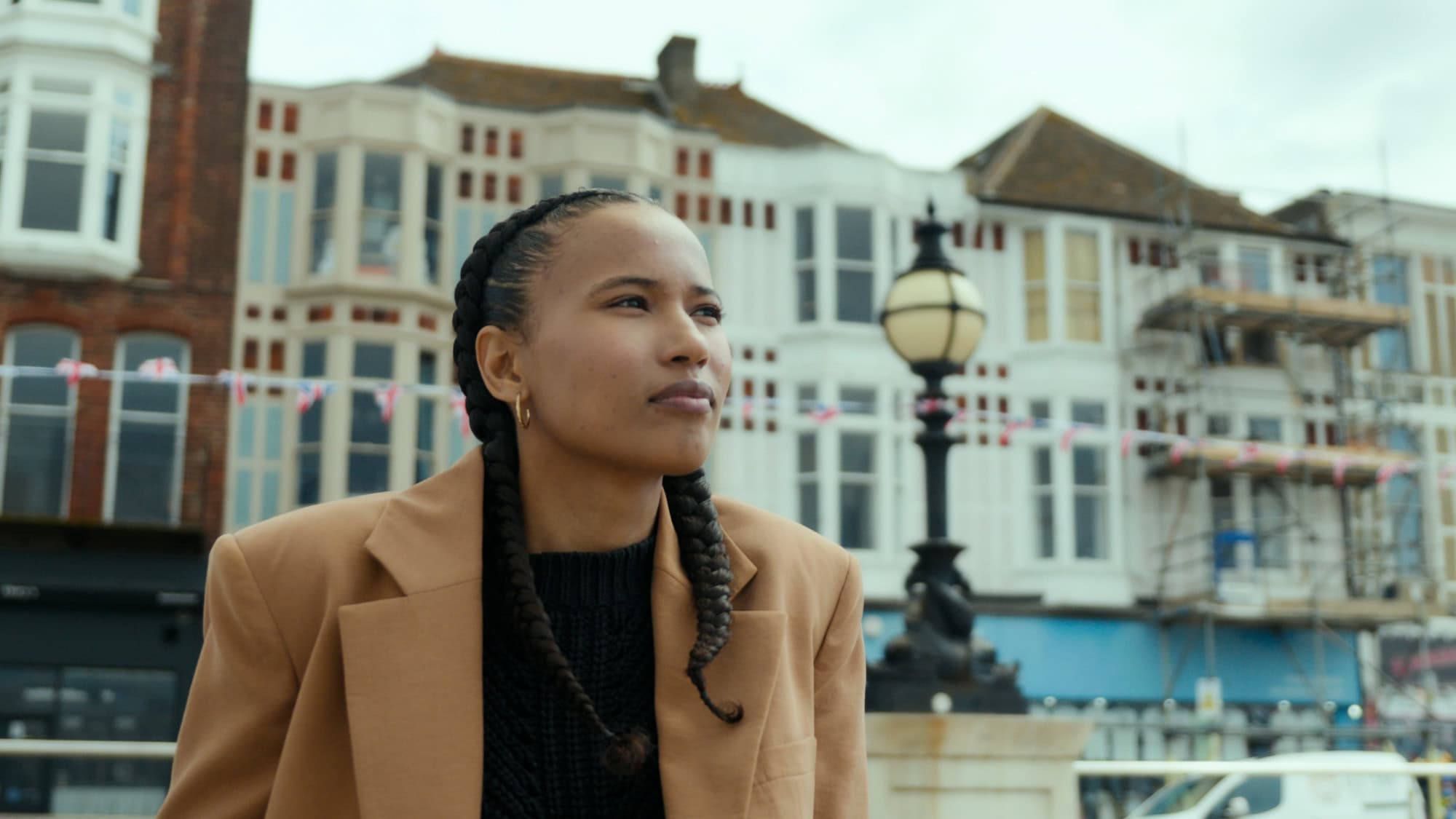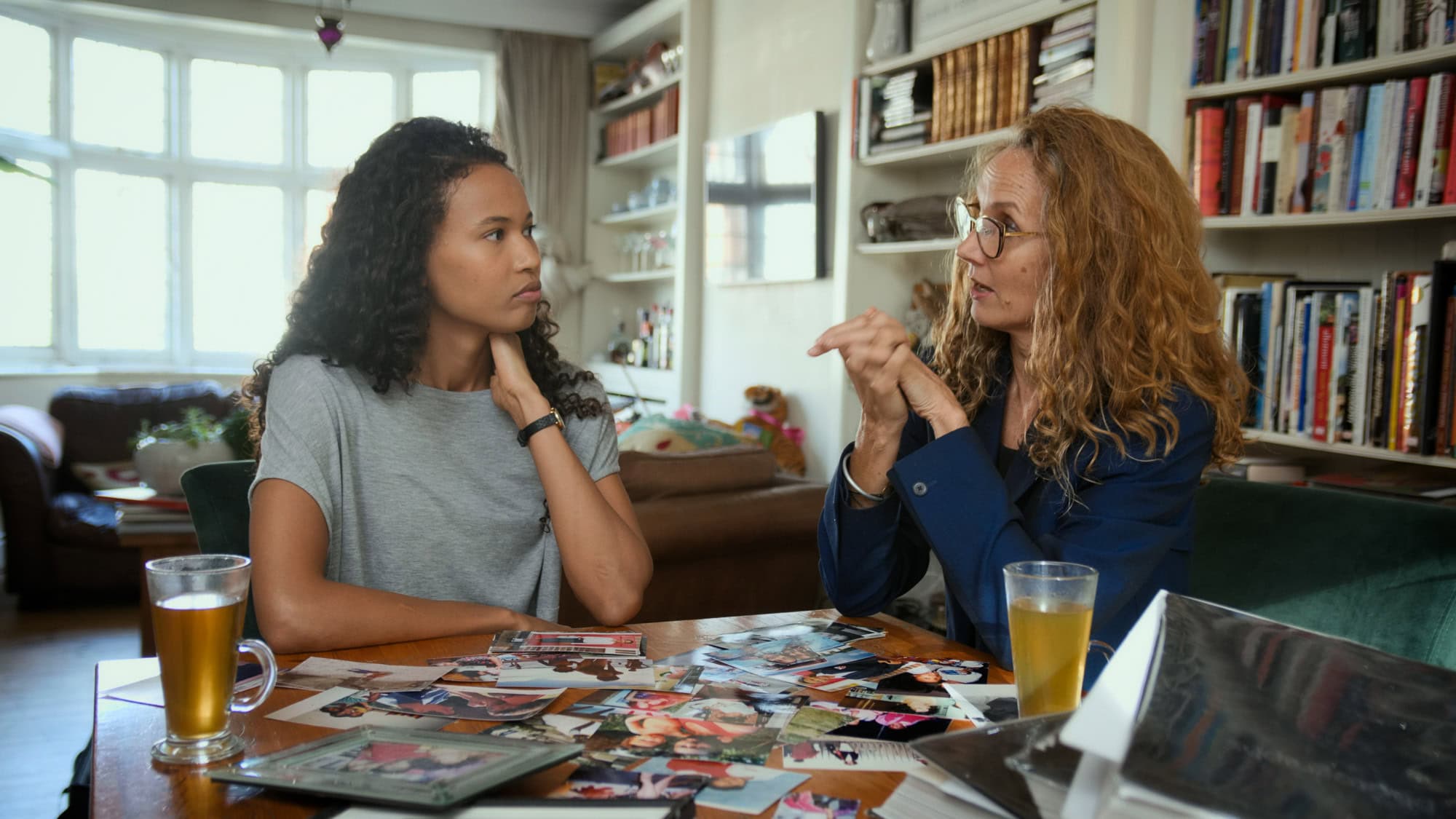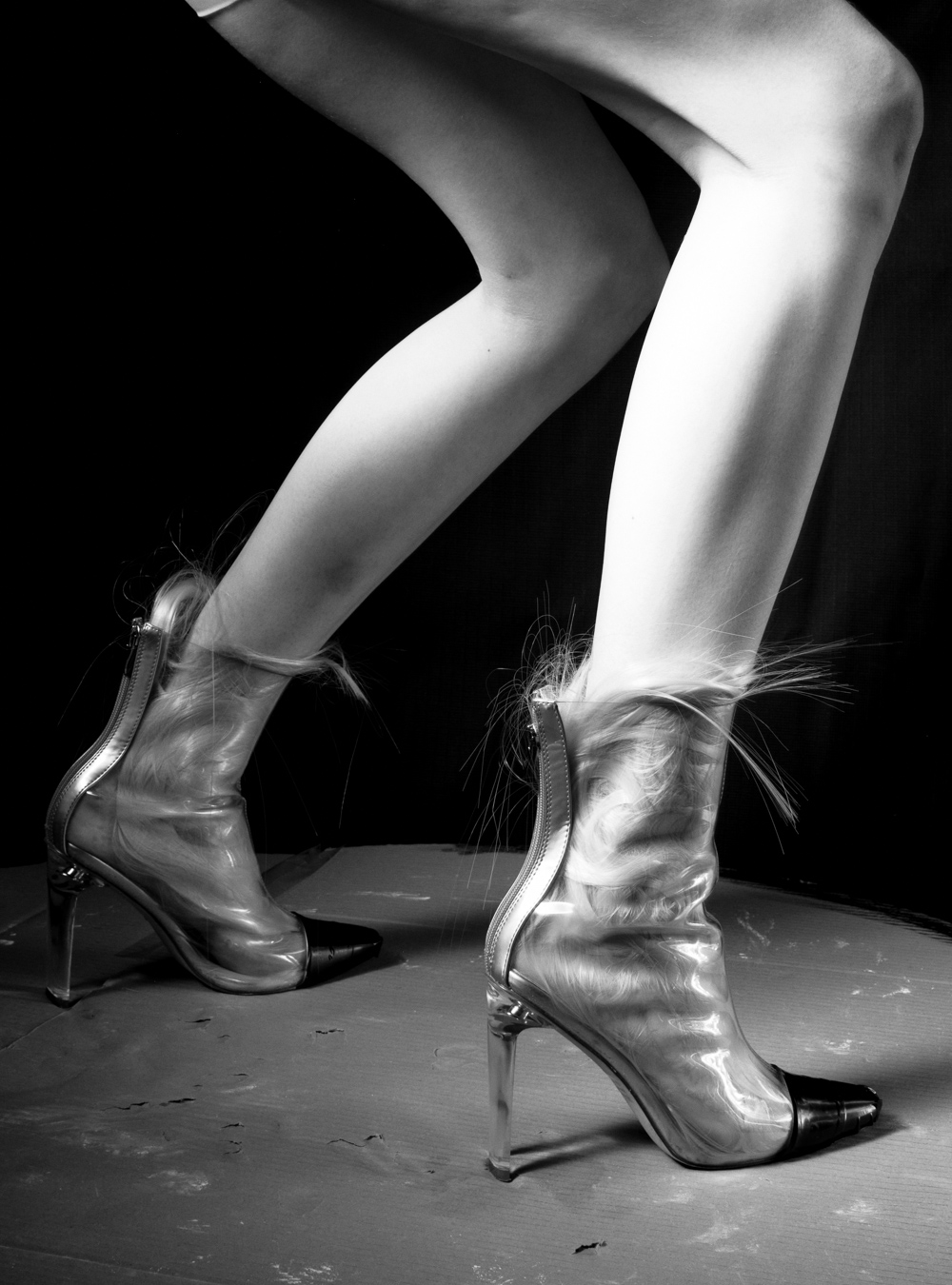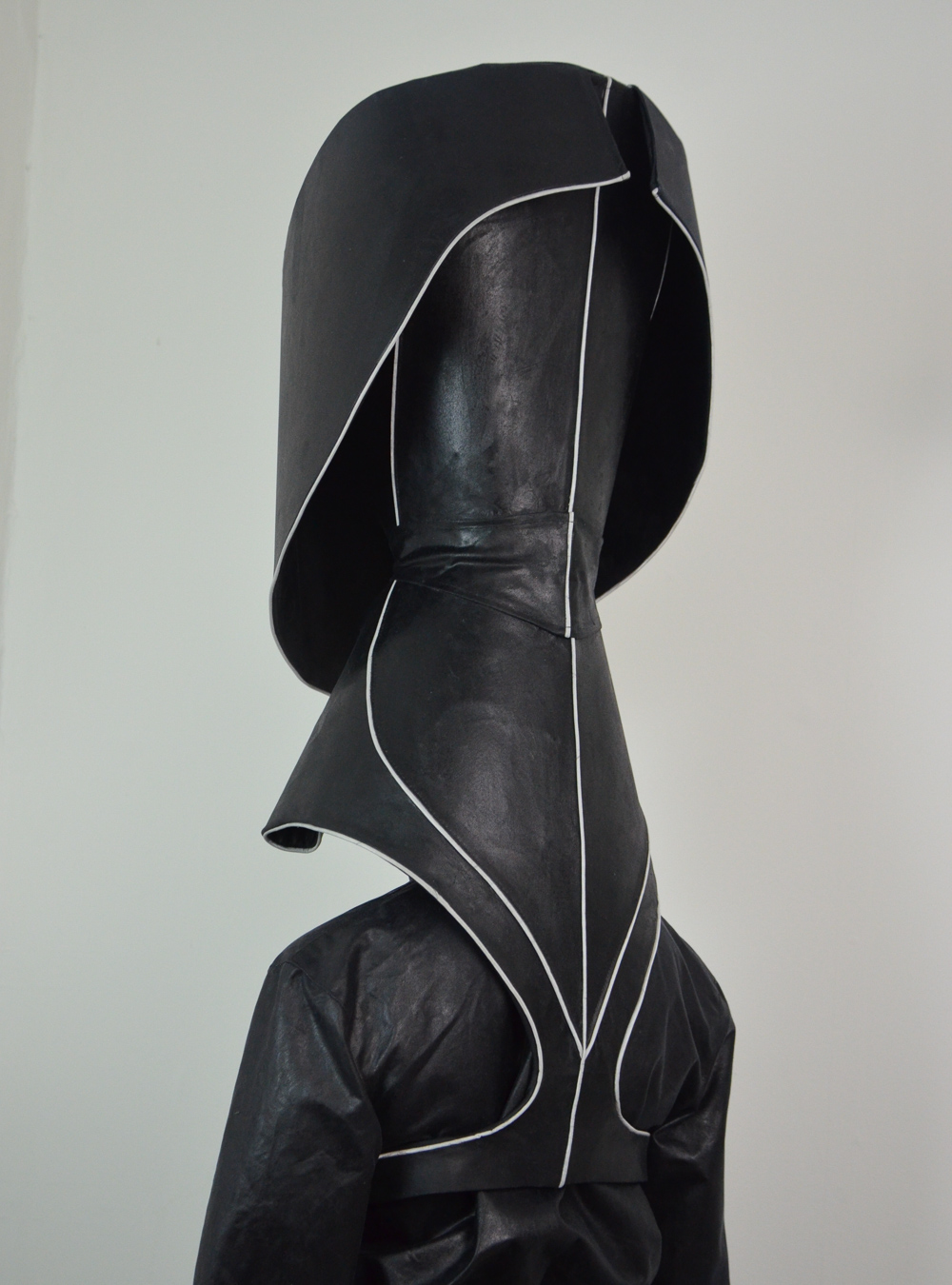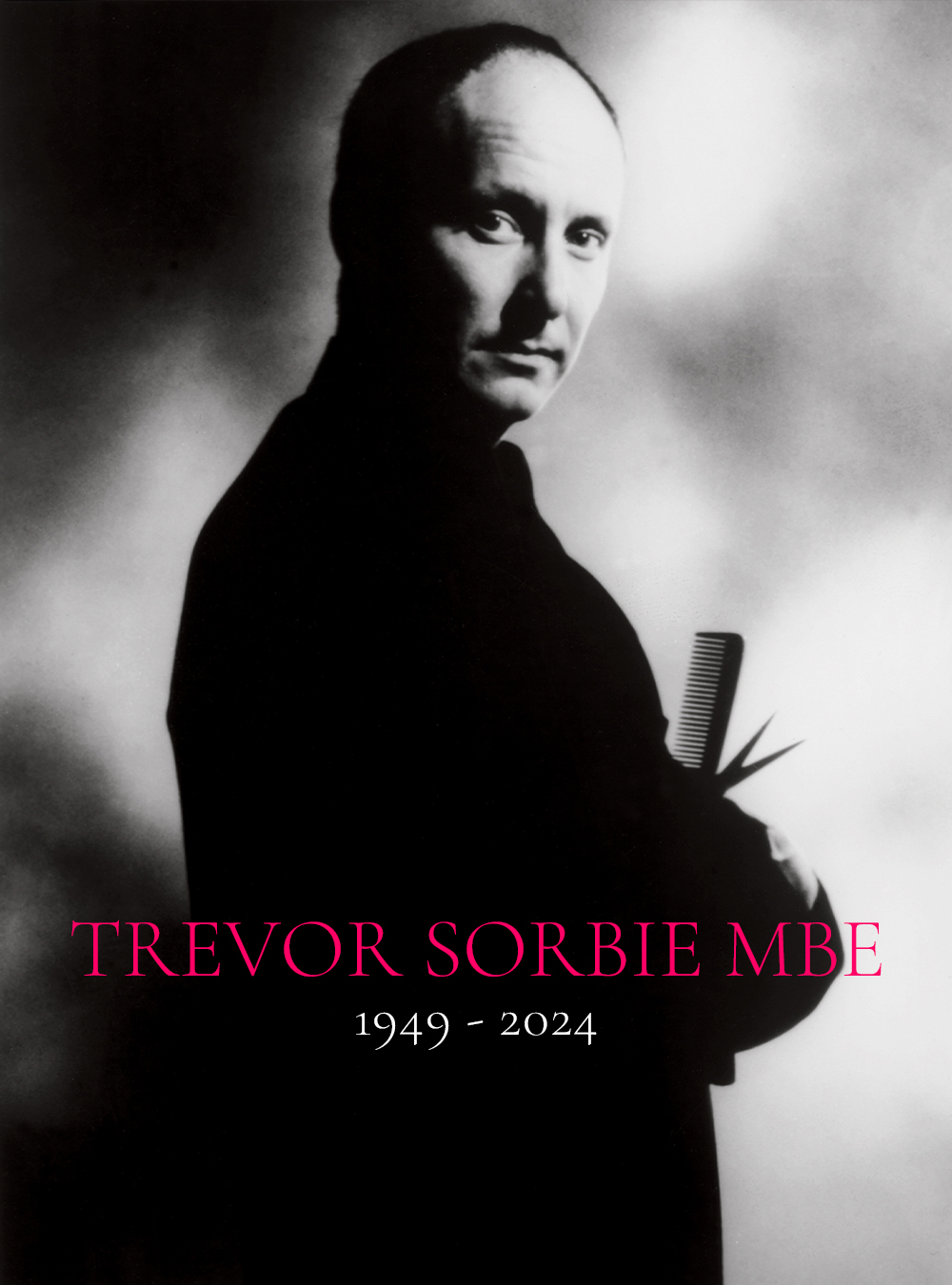ART + CULTURE: Fola Evans-Akingbola discusses her new film, Untold Stories: Hair on Set, in which she unpacks the struggles of those with afro-textured hair on film and TV sets alongside a cast of Britain’s powerhouse professionals
Interview: Hasadri Freeman
Special Thanks: Fola Evans-Akingbola
Untold Stories: Hair on Set is now streaming in the UK with Sky Documentaries via NOW TV.
In this Q + A, rising screen star Fola Evans-Akingbola (The Night Agent, Ten Percent, Siren) gives us the backstory on her first feature documentary, Untold Stories: Hair on Set. Unearthing the hidden hair struggles of Britain’s top talent, delving into the lack of training and support for actors with afro-textured hair through intimate conversations with the likes of the Oscar and BAFTA-nominated Naomie Harris, Nathalie Emmanuel of Game of Thrones and Fast & Furious franchise stardom, and hair-team heavyweights like Nora Robertson and Kevin Fortune, the documentary gives equal weight to both problems and potential solutions. Her own frustration with, for example, having to send tutorial videos to hair teams before shoots, gave way to working through film to understand how her industry can sustainably support Black and brown actors in the long term. She sat down with INFRINGE Magazine to discuss all things hair, film + TV, as well as what it means to be a creative in today’s production-oriented culture, how our narratives around workplace protections for artists need to change, and why she’s working towards integrating ‘play’ into her daily hair routine.
Fola Evans-Akingbola: The documentary was borne out of necessity. I was so aware of what was going on on-set for actors with textured hair, and was also personally getting so frustrated as one of those actors I felt this sense of, okay, what can I contribute towards making things better in this area? I love storytelling, and I love that film and TV is a visual medium, so I knew I wanted to say something about this issue but say it through film.
Infringe: There’s a beautiful moment in your film when Dominique Tipper talks excitedly about her positive experience working with Yasmine Crosdale and Natalie Nelson on The Expanse—how she never wants to go back to a time where her hair isn’t a part of her character’s becoming, getting to create alongside her hairstylist to truly inhabit her role. In your own experience, why does hair allow you to become a character?
FE-A: I think it’s important to note that every department is essential for storytelling and character building. But to focus on hair, I think it’s because our hair is so connected to our identity as people. How someone wears their hair says so much about them. Even if it doesn’t tell the whole story of their life, it expresses so much about them in that moment. Therefore, for actors, it’s an incredibly powerful tool. If we don’t have the opportunity to properly explore it, it can feel like you’re not fully creating a character, that you’re limited to what the hair team can do with your hair. And if all that is is to put it in a simple ponytail—which is fine, if the character genuinely would wear a simple ponytail—but if the character is someone that would have intricate braids and beading, it’s a huge opportunity lost.
I: Another moment from the film that struck me was when Naomi Ackie says of her breakage after hair mistreatment on set, “it felt like payment…like I was paying for being Black.” Do you still feel that there are parts of your identity which have to be shaved down or cut off completely to be able to do your job? Why do you feel the industry is comfortable putting extra work on Black actors to ‘manage’ the parts of their identity that the system deems ‘unmanageable?’
FE-A: For me specifically, that links back to why I started making the documentary. On the whole, I have had an incredibly positive experience in this industry, and have loved being an actress, and being on sets. It’s just this area of ‘hair’ where I feel I can’t be myself, and that’s why I made the film. Historically, the industry hasn’t had to learn how to do our hair. Onscreen diversity is moving in a very positive direction, but I’d say the further back we go, we go, oh okay, there’s less, there’s less, there’s less…the impetus for teams to have learned this skill wasn’t as urgent. But now that’s changing, and I don’t think people will be able to get away with not having the skills to do the hair of everyone that sits in front of them.
I: At the end of the film you discuss, alongside other industry professionals, representation in a structural sense as a possible solution to these issues. Part of what you’re talking about is the distinction between inclusion disparities above and below the line. Do you feel that the film and TV industries have been well served by inclusion schemes that focus on visible diversity amongst above the line workers, or rather that it has led to the creation of “pockets of good practice” as Ade Rawcliffe (Group Director of Diversity & Inclusion at ITV) puts it in your film?
FE-A: Well, of course we should continue to ensure above the line teams are diverse. And when I say diverse, I don’t just mean in skin tone, I mean diverse in background, in class, diversity of thought—’diversity’ in the widest sense of the word. But for that kind of diversity to be properly supported, the industry needs to continue to do the work to make sure the crew is also diverse, and that there’s access pathways across the industry. One of the things that takes more time is what Nora Robertson recommends in the documentary: going into schools. What happens when you tell a 16-year-old-kid who might think that they want to be an electrician going into houses, but also has a side passion of film, did you know you can be an electrician, but on a set? And part of telling the story?
I don’t think people know that. I certainly didn’t know that when I was 16, and I grew up in a house where my parents made sure all options were open to me. There’s so much more—a film set is practically a mini society. There’s a chef, there’s an electrician, there’s a carpenter, there’s first aid, there’s everything. I think if people from backgrounds that tend to not end up on a film set were informed of these opportunities, and if there was a smooth route for them to get there, I think it would really help the industry. And it wouldn’t only support on-screen diversity, it would just make storytelling better. There’s all this mixture of people and perspectives.
I: It’s also a sustainability issue. Because if you are just focussing on getting people involved in a visible sense, and not incorporating the teams to make them successful, you’re not really serving the communities that you’re claiming to serve. It’s not genuinely making the industry welcoming—it’s just trying to make it look welcoming.
On that idea of support, Elarica Johnson mentions in the film how the hair and makeup trailer sets the tone and energy. Additionally, your contributors generally discuss the necessity of hairdressers to be able to properly acknowledge the lacks in their skillsets instead of putting that emotional labour on Black actors. Do you think that there is a way that even hairdressers without the necessary training can be advocating for instead of minoritizing Black and brown on set? How can these hairdressers take steps to be the change in the industry?
FE-A: I think there’s a couple of things. They can always operate from a position of curiosity, and willingness to learn. If they’re in a certain position to hire others, they can always bring on someone who does have the skills to join the team. What’s difficult is that this is a problem that can’t change overnight, because it’s about skills, and skills take a long time to develop. But simply acknowledging that, having that open dialogue, can help remove some of the friction and the tension.
We can all be honest with each other. The skills aren’t there, we should get someone that has the skills, but if we’re in a position that we can’t get someone—we shouldn’t be in that position but if we can’t—then let’s work together. But that’s me personally. I know some actors that would not want to be asked to help, because it’s not their job. But I think generally, as humans, when someone admits: I’m really sorry, I don’t know how to do it, and I am going to go and take a course but right now we’re here, I’ll work with them on it. We’ll work on it together.
I: You’re getting into the way film sets are structured, the way they function on the day. It opens up an interesting dialogue about precarity as it relates to the physical body that shows up to work. This precarity extends to mothers, to disabled workers, to feminised bodies, and to racialised bodies as you discuss in the film. Clearly there is something about the structure of film sets that is exclusionary. Nathalie Emmanuel discusses another experience of institutional racism in the film, where her hair was considered a ‘health and safety’ issue at school. What do you feel is the justification, from a structural industrial standpoint, offered for things like inadequate hair and makeup teams, a lack of accessibility, and/or a lack of childcare?
FE-A: Time is often one that comes up. In this industry, the call sheet is given in military numbers! And I have a lot of compassion for that pressure, having now produced the documentary, because it’s incredibly stressful to get something made. I genuinely believe everyone is trying their best. I think that these struggles are not, for the most part, coming from a position of malice. It’s a lack of awareness, and a culture of thoughtlessness—people just don’t know.
And it’s not okay to not know, but I think the reality is that it wouldn’t even cross their mind. I’m trying to put myself in their position. I’m trying to think of how I could, as an able-bodied person, have a blind spot around disability, and would have to make a conscious effort to say, okay, let’s make sure we’re thinking about someone with accessibility needs. But if you don’t make a conscious effort to think, what could we be missing here? What could we be taking for granted because it doesn’t directly impact ‘us?’ Then of course you’re just going to plow on, because everyone’s passionate and you’re trying to get the film made.
I personally believe our industry is full of such incredibly intelligent and creative people. We can make it look like dragons exist, that mermaids are swimming by, and we found a way to shoot stories throughout a global pandemic, and keep people safe doing so. So, I think people can put that brainpower towards making sure all groups—whether it’s accessibility needs, or childcare needs, the right hair teams—I trust that our industry can figure it out if they want to.
I: You called sets a ‘mini society.’ It’s possible that if there are members of all of these groups within those production teams in this ‘society,’ there’s more of an opportunity for someone to say, hey, you might not be thinking about this, but I need this to do my job, so maybe other people need it to do theirs. And the contributors in your film talk a lot about wanting to just show up and be able to do their job. How do you think our relationship to art and artists and the perceived ‘privilege’ of having the job of being an artist, especially a Black or brown artist, works in tandem with the pressures to as some of your actors in the film say, “not want to come across as the difficult brown girl?” The pressure to stay quiet because these actors are “lucky to be there?”
FE-A: I think they’re really closely linked. It takes so much for anyone, of any background, to decide to do a job that’s outside a “normal” work pattern, a 9-5. And there’s such a narrative telling people, don’t be an actor, or don’t be a musician, or don’t be a photographer, you’ll never make a living, you’ll struggle (which is not necessarily a helpful narrative), but nevertheless, it’s true that this it’s a precarious path to take. You’re just so happy when you get a job, and at the same time, I don’t think most actors are like ugh, I’m going to work now. It’s more, yay, I get to play! And tell stories!
To then express discomfort about something on set—I think people are worried about being seen to be ungrateful, or worried that if they speak up too loudly, they might lose that job.
I: Your mother, social anthropologist Dr. Gillian Evans, says in your film that “being racialised as Black or mixed-race is a difficulty that extends beyond the situation of the photoshoot.” In the same way that structural racism is baked into our broader culture, there’s a co-occuring negative view of creative production that deems anyone involved in it to be ‘playing,’ that they’re privileged to even be working in that environment—
FE-A: —Yeah, like an it’s not heart surgery mindset.
I: Exactly, and I think there’s something in the broader way that we perceive cultural production that does have to change if we want to truly be able to advocate for professionals in the industry—to really be able to acknowledge that yes, this is a beautiful job to have, and it’s a beautiful way to be living your life, but it is also a workplace. Currently, because of the ‘privilege’ of ‘getting to be an artist,’ you often don’t get the protection that you deserve as a worker.
FE-A: One of the important points of the documentary is that, even though it is a privilege to be an actor, or to be on a set, it is a workplace environment. A production employs hundreds, sometimes thousands of people. And yes, it’s not an employment that looks like a 9-5, but it’s employment nonetheless. A huge part of our society and how we all as humans come to understand ourselves is through stories. And someone’s got to make those stories. That’s a job.
I: You talk positively about American industrial networks like the Black Beauty Roster (BBR) in the film. Do you feel the British cultural scene poses different challenges to inclusion? Is this issue about being scared to even interact with or touch Black hair specific to white creative Britain’s relationship to Black bodies?
FE-A: Well, I’ve worked quite a lot in North America, and I know a lot of people who have, and the problems are still there. They’re different, and sometimes not as bad—if we only speak about Black voices for now, the Black population in America is significantly larger, and therefore has a louder voice. And globally, when people talk about Black civil rights, most people know more about the Black American civil rights history than the UK’s—myself included. I don’t know for sure, but I theorize that in America there’s a more present dialogue about race.
I: As another aspect, some of the plusses of the culture industries in America come from differentiated access pathways, thought those have become more restricted, whereas here in Britain, cultural production can still be very insularly centred around the upper class. It’s only recently that I feel the mainstream has actually allowed alternative stories to enter.
FE-A: It goes back to the question of access. Who is allowed to tell stories? Who has the power, the financial means, the networks to get those stories made? There is that class barrier. But overall I’m hopeful that the industry is changing.
I: To close, I wanted to ask you: irrespective of your time on sets, what’s your relationship to your own hair?
FE-A: It’s still a complex one. It took me so long to love my hair. As an adolescent, I was starting to think, what counts as pretty, what counts as beautiful? The boys that I’m around, are they liking me? I was coming to realise that there was a specific version of beauty out in the world that was appreciated, and I just didn’t feel like it was me. And a lot of that was to do with my hair. So, I would do nothing with it: get it away from my face, tie it up. But at my first part-time job, the look policy was that you had to wear your hair down and natural. Even though the look policy in the shop was itself a bit problematic, I’m always thankful for it because it was there that I would be getting compliments, and it helped me realise, actually my hair is quite nice! That started the journey for me, but what really changed it was finding the right hairdresser. And I cried the first time I went to that salon. I had no idea that my curls could be defined, and healthy, and bouncy.
But honestly, even though I now know what my hair can do, I’m also still quite lazy with it. I think that’s another conversation about time, and self-care. Afua Hirsch has just released a book called Decolonizing my Body, and she talks about what we consider to be ‘worth’ our time. This idea that oh, I couldn’t possibly spend an hour in the morning doing my hair. But what’s wrong with that? What’s wrong with putting care and time into yourself when you have the resources? Obviously, it’s a luxury, but it’s largely because we live in a culture where being productive is considered the highest goal that an hour doing your hair is considered madness.
I: This could be a feedback loop to your work, because you’re considering what you were able to see as ‘pretty,’ and what you are able to see as worthy of care and time. It’s about representation: if we’re not seeing everyday characters on screen with time-consuming hairstyles, can we justify it for ourselves?
FE-A: Exactly. The next leg of my own hair journey might be to embrace the versatility of it more, and experiment through the creativity outlet of my hair in my personal life. There’s truly so much I could do with it, and I don’t afford myself that playful time. I think my next chapter is going to be to explore that—to play.
